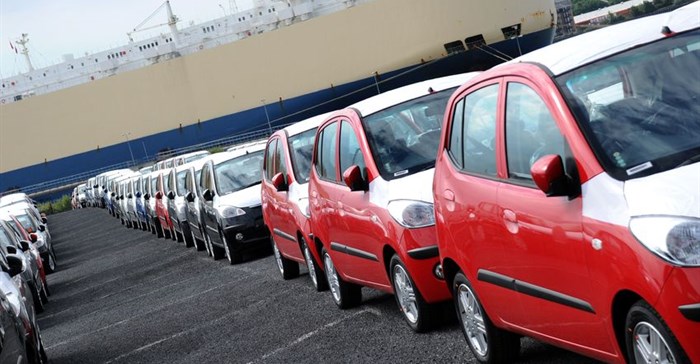
Top stories






More news






ESG & Sustainability
#Sona2026: President announces crisis committee to tackle SA's water challenges








A delegation from AAAM, led by Jeff Nemeth, chairman of AAAM as well as president and CEO of Ford Motor Company sub-Saharan Africa region, visited Nigeria’s capital city, Abuja, to engage with government and industry leaders.
The programme included discussions with President Muhammadu Buhari, along with government ministers and representatives from Nigeria’s National Automotive Design and Development Council (NADDC) and the National Automotive Manufacturers’ Association (NAMA). This was intended to create the framework for policy development to support the growth of the local industry.
AAAM was inaugurated on 25 November 2015 by founding members BMW, Ford, General Motors, Nissan, Toyota and Volkswagen, focusing on key markets of the African continent.
“The aim of the African Association of Automotive Manufacturers is to unlock the economic potential of the African continent by promoting a policy environment that is conducive to the development of the automotive sector,” says Jeff Nemeth.
“As the African continent becomes increasingly important within the global economy, it is crucial that we develop an auto sector strategy backed up by incremental investments in infrastructure, skills development and in-market localisation programmes. This will make new vehicles more affordable, boost the industrialisation of the economy and lead to the growth of middle-income households, which will be the main driver for new vehicle sales,” Nemeth says.
Outside of South Africa, which has a well-developed world-class automotive industry, Nigeria is recognised as a strategic market over the long term due to its demographics. Although Nigeria is recognised as Africa’s largest economy, the automotive sector is relatively small, with an estimated 44 vehicles per 1,000 inhabitants, according to Deloitte Africa’s Automotive Insights, published in April 2016. “This is far below the global average of 180 vehicles per 1,000 inhabitants, and lower than other developing regions such as Latin America (176) and Asia, Oceania and the Middle East (79),” the report indicates.
“One of the biggest challenges we face in Africa is the lack of reliable data on the number of new and second-hand vehicles sold on the continent, as very few countries have formal reporting or legislative structures to monitor the automotive sector,” Nemeth adds. “This is exacerbated by the large number of second-hand imports, with only a small proportion of new cars sold due to the high import duties and lack of affordable financing options.”
AAAM’s mandate is to engage with government, industry bodies and representatives from the motor sector to provide advice on opportunities to formalise, develop and grow all aspects of the local automotive industry. This includes promoting an investor-friendly regulatory framework that will support the development and implementation of policies to establish a viable automotive manufacturing industry on the continent that includes both assemblers and suppliers.
“To unlock this market potential will require greater government and private sector partnerships to develop a formal legislative environment that is conducive to longer-term growth. It needs a more robust automotive strategy that promotes a sustainable and stable environment in support of local manufacturing operations,” Nemeth says.